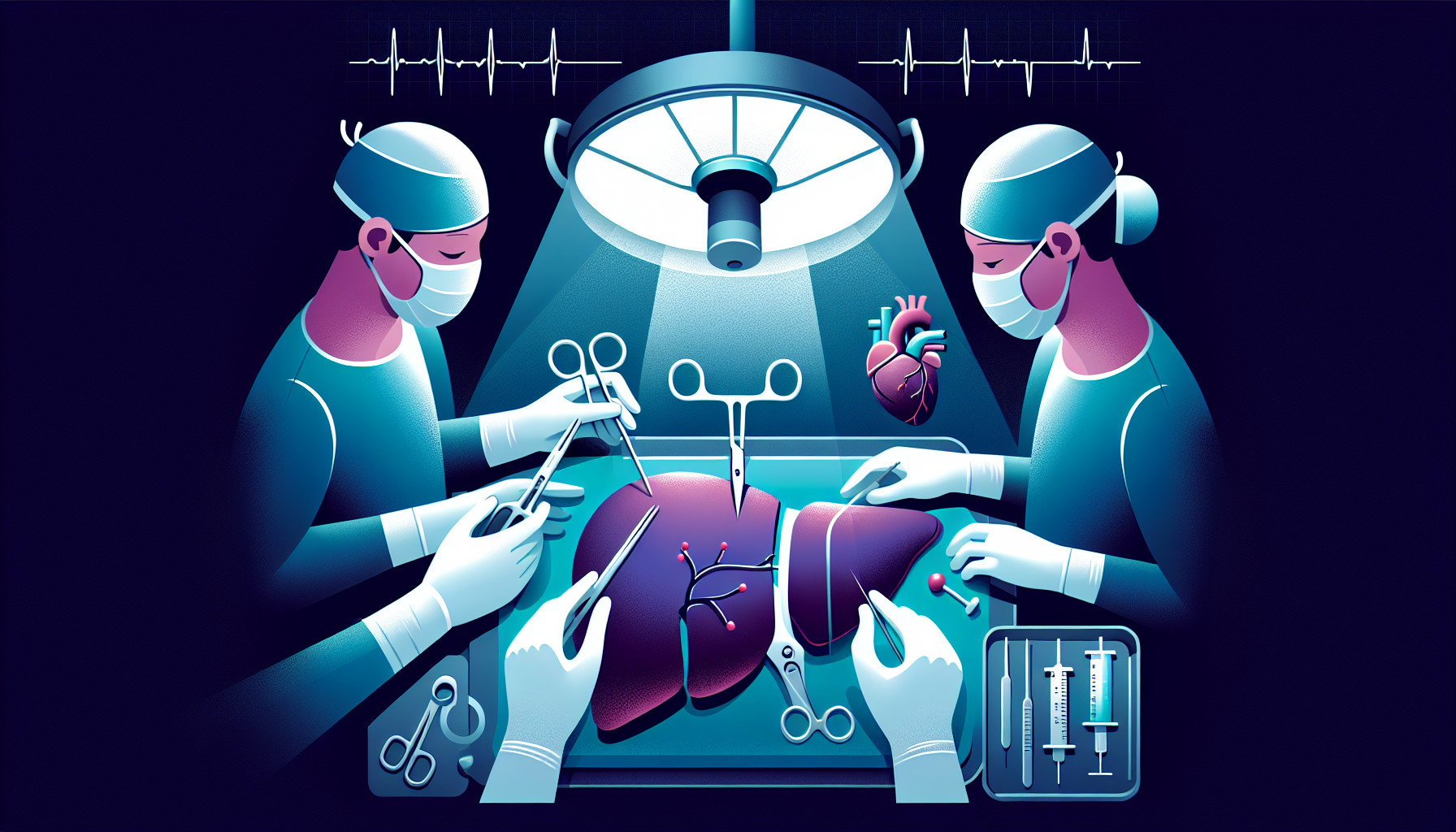Our Summary
This research paper discusses the common issue of malnutrition in patients with liver disease, particularly those waiting for or who have received a liver transplant. Malnutrition often leads to muscle loss, which can cause serious health issues and even death, not just while waiting for a transplant, but also after the operation. However, there are currently no official guidelines on the best type or timing of dietary intervention to improve the health outcomes for these patients. The paper reviews studies on this topic that have been conducted in the context of liver transplants and suggests new areas for future research.
FAQs
- What is the relationship between malnutrition and liver transplants?
- Are there any specific guidelines for nutritional intervention to improve liver transplant outcomes?
- What is the impact of malnutrition on liver transplant candidates or recipients?
Doctor’s Tip
One helpful tip a doctor might give a patient about liver transplant is to focus on maintaining good nutrition both before and after the transplant. Proper nutrition can help improve outcomes and reduce complications during the transplant process. It is important to work with a healthcare provider or nutritionist to develop a personalized nutrition plan that meets your specific needs and supports your overall health.
Suitable For
Patients with cirrhosis who are experiencing malnutrition and sarcopenia are typically recommended for liver transplant. These patients may have a higher risk of morbidity and mortality both before and after the transplant procedure. There are currently no specific guidelines on the type or timing of nutritional interventions for these patients, but research is ongoing to determine the best approach to improve outcomes for liver transplant candidates and recipients.
Timeline
Before liver transplant:
- Patient is diagnosed with end-stage liver disease and is evaluated for a liver transplant.
- Patient undergoes extensive medical testing and evaluation to determine eligibility for transplant.
- Patient is placed on the transplant waiting list and waits for a suitable donor.
- Patient may experience complications from their liver disease, such as malnutrition, ascites, and hepatic encephalopathy.
- Patient may receive nutritional support and interventions to improve their overall health and prepare for transplant.
After liver transplant:
- Patient undergoes liver transplant surgery and is closely monitored in the intensive care unit post-operatively.
- Patient is started on immunosuppressive medications to prevent rejection of the new liver.
- Patient may experience complications from the transplant surgery, such as infection, rejection, or organ dysfunction.
- Patient undergoes rehabilitation and physical therapy to regain strength and function.
- Patient receives ongoing medical care and monitoring to ensure the success of the transplant and prevent complications.
- Patient may need long-term nutritional support and counseling to maintain optimal health and prevent malnutrition.
What to Ask Your Doctor
- What dietary changes should I make to improve my nutritional status before and after the liver transplant?
- Are there any specific nutritional supplements or medications that I should be taking to support my liver health?
- How will my nutritional status affect my eligibility for a liver transplant and my post-transplant recovery?
- Are there any potential complications related to malnutrition that I should be aware of before and after the transplant?
- Can you refer me to a dietitian or nutritionist who specializes in liver transplant patients?
- How often should I have my nutritional status monitored after the transplant?
- Are there any lifestyle changes or habits that I should adopt to support my liver health and overall well-being post-transplant?
- What are the potential risks and benefits of nutritional interventions in improving outcomes for liver transplant patients?
- How can I best manage any dietary restrictions or challenges that may arise before or after the transplant surgery?
- Are there any alternative or complementary therapies that may support my nutritional status and overall health during the transplant process?
Reference
Authors: Campos-Varela I, Gómez-Gavara C, Augustin S. Journal: Transplantation. 2021 Dec 1;105(12):2528-2537. doi: 10.1097/TP.0000000000003736. PMID: 33724244
